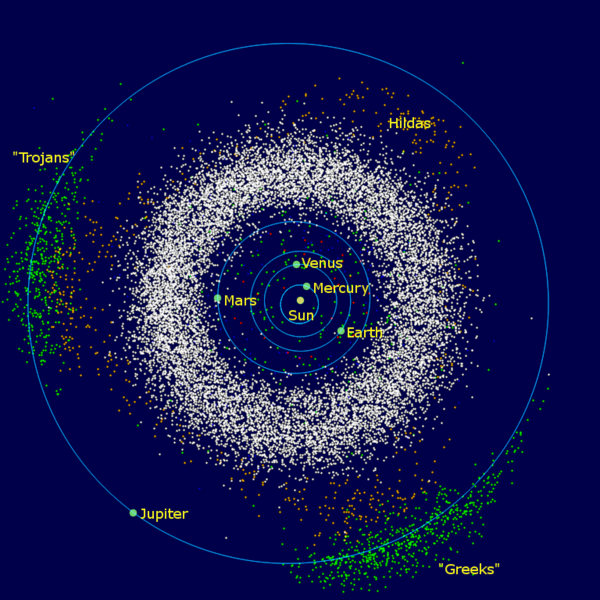Shoutout to the creep stalking me atm to spam downvote my comments. You know you can just block me, right? Grass is free to touch
Pluto will always be a planet to me, and you’ll pry that definition from my cold, dead hands!
Stay strong. A dwarf planet is a perfectly valid kind of planet, don’t let anyone tell you otherwise.
It’s not the size that counts but the ability to clear your orbit. ;)
So tell me about Jupiter
Good question! I had forgotten about Jupiter’s Trojans and Greek asteroids!

I went and checked the definiton of Clearing the Neighborhood by IAU, emphasis mine:
The phrase refers to an orbiting body (a planet or protoplanet) “sweeping out” its orbital region over time, by gravitationally interacting with smaller bodies nearby. Over many orbital cycles, a large body will tend to cause small bodies either to accrete with it, or to be disturbed to another orbit, or to be captured either as a satellite or into a resonant orbit. As a consequence it does not then share its orbital region with other bodies of significant size, except for its own satellites, or other bodies governed by its own gravitational influence. This latter restriction excludes objects whose orbits may cross but that will never collide with each other due to orbital resonance, such as Jupiter and its trojans, Earth and 3753 Cruithne, or Neptune and the plutinos.[3] As to the extent of orbit clearing required, Jean-Luc Margot emphasises “a planet can never completely clear its orbital zone, because gravitational and radiative forces continually perturb the orbits of asteroids and comets into planet-crossing orbits” and states that the IAU did not intend the impossible standard of impeccable orbit clearing.[2]
Trojans and Greeks orbit Jupiter’s LaGrange points in a stable orbit and so they are governed by Jupiter’s gravity. You could say they’re really weird moons orbiting semi-stable points Jupiter creates.
So since there are like 95 moons (as of last Feb) of jupiter, I’m calling out a dwarf planet
Arenyou gonna start calling Ceres, Haumea, Makemake, and Orcus planets?
We went through this 150 years ago ehen the asteroid belt was discovered. Every astronomer wanted credit for discovering a new planet, so at one point there were 15 before all the astronomers got together and said it was untenable.
Yes. We could have had a planet Orcus and we were like “nah, we’ll pass.” That would have been metal as shit.





